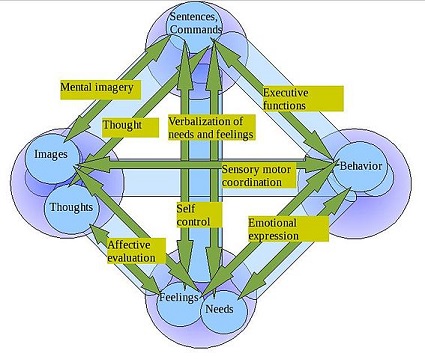Cognition vs Metacognition
Cognition and metacognition are often confusing for many people due to the overlapping nature of these two concepts. Cognition involves mental processes such as memory, learning, problem-solving, attention, and decision-making. On the other hand, metacognition refers to an individual’s higher-order cognitive processes where a person has active control over their cognition. This article aims to provide a basic understanding of cognition and metacognition, highlighting the differences between the two.
What is Cognition?
Cognition can be simply defined as all mental processes and abilities that people engage in daily, such as memory, learning, problem-solving, evaluation, reasoning, and decision-making. Cognition helps generate new knowledge through mental processes and assists in using the knowledge that people have in daily life. Educational psychologists, especially interested in studying cognitive processes, have focused on the growth and development of children. Jean Piaget is particularly important in this area, as he presented stages of cognitive development from birth to adulthood: sensorimotor stage (birth-2 years), pre-operational stage (2-7 years), concrete operational stage (7-11 years), and formal operational stage (adolescence-adulthood).
What is Metacognition?
Metacognition is often defined as thinking about thinking, allowing individuals to complete a given task successfully through planning, monitoring, evaluating, and comprehending. While cognitive processes enable normal functioning, metacognition takes it a level higher by making a person more aware of their cognitive processes. For example, a child completing a mathematical question would use cognitive processes to finish the task, while metacognition would involve double-checking the answer through monitoring and evaluating. Metacognition helps to verify and build confidence, contributing to successful learning.
John Flavell (1979) identified two categories of metacognition: metacognitive knowledge and metacognitive experience. Metacognitive knowledge refers to the knowledge that helps control cognitive processes, while metacognitive experience involves strategies used to control cognitive processes to successfully accomplish a task.
Key Takeaways
- Cognition involves mental processes such as memory, learning, problem-solving, evaluation, reasoning, and decision-making, while metacognition refers to higher-order cognitive processes with active control over cognition.
- Metacognition helps to verify and build confidence, contributing to successful learning, whereas cognition helps generate new knowledge through mental processes and assists in using the knowledge that people have in daily life.
- The main difference between cognition and metacognition is that metacognition deals with the active control of cognitive processes, usually preceding a cognitive activity.
